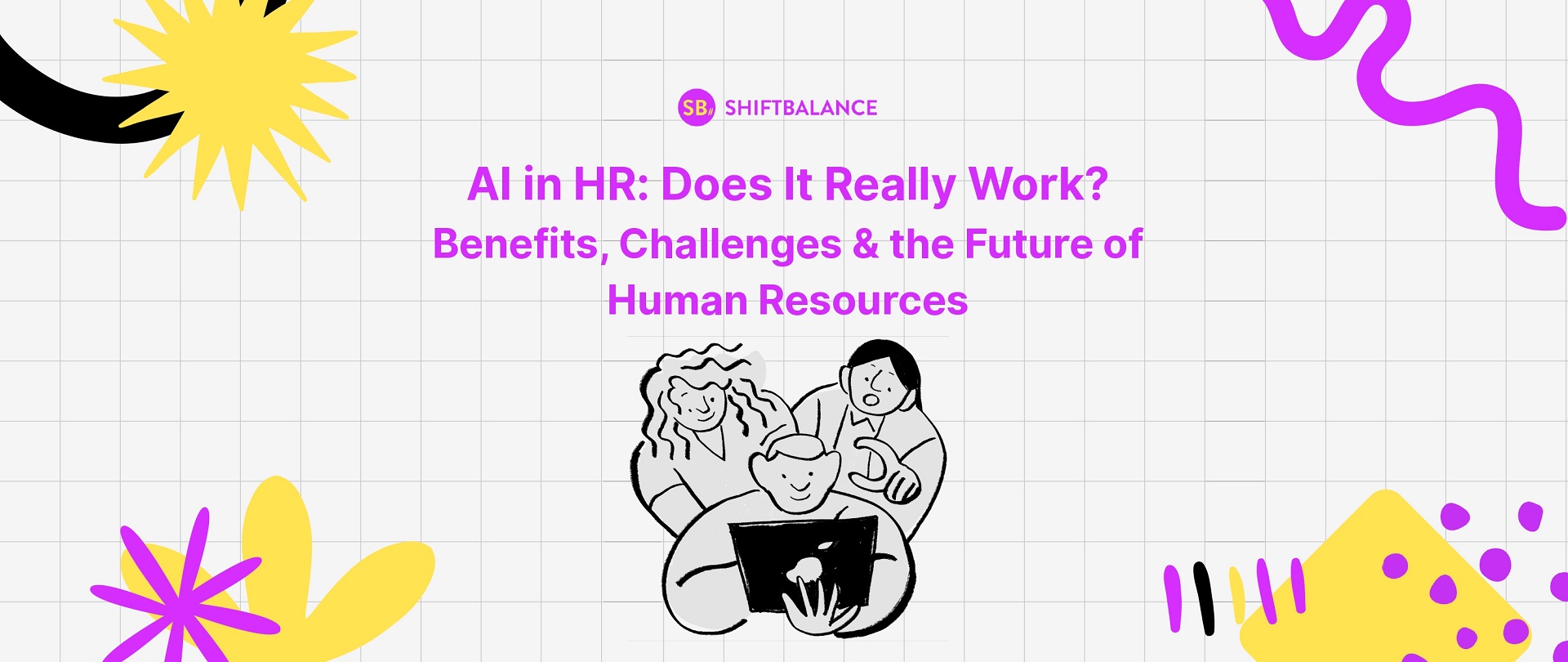Benefits, Challenges & the Future of Human Resources
The Rise of AI in Human Resources
Artificial Intelligence is reshaping nearly every industry, and Human Resources (HR) is no exception. From automating recruitment to improving employee retention and performance management, AI in HR is proving to be both powerful and controversial.
But does it really work? Is it beneficial for long-term workforce strategy? And could AI eventually replace HR professionals? Let’s find out.
What Is AI in HR and How Does It Work?
AI in HR uses algorithms, data analytics, and machine learning to streamline HR processes and make data-driven decisions.
Here’s how AI is being applied across HR functions:
1. Recruitment & Talent Acquisition
- AI-driven applicant tracking systems (ATS) screen thousands of resumes in seconds.
- Chatbots engage candidates, answer questions, and schedule interviews.
- Predictive analytics helps identify the most suitable candidates for a role.
2. Onboarding & Training
- Personalized onboarding systems tailor materials and experiences to each employee.
- AI learning platforms recommend upskilling courses based on goals and performance.
3. Performance Management
- AI tracks progress, analyzes feedback, and detects productivity patterns.
- Sentiment analysis helps measure employee engagement and morale.
4. Employee Engagement & Retention
- AI surveys analyze team sentiment in real time.
- Predictive analytics can flag employees at risk of burnout or resignation.
Top AI Platforms Transforming HR
Here are some leading AI tools for HR:
| Platform | Primary Use | Key Feature |
| HireVue | Video Interviewing | AI-based candidate assessments |
| Eightfold.ai | Talent Intelligence | Predictive workforce analytics |
| Paradox (Olivia) | Recruiting Chatbot | 24/7 candidate interaction |
| Pymetrics | Hiring & Assessment | Neuroscience-based gamified tests |
| Workday | Workforce Management | AI-powered analytics for HR and finance |
| Leena AI | Employee Experience | Automates HR support and onboarding |
Benefits of Using AI in HR
- Saves Time and Improves Efficiency
AI automates repetitive administrative work like resume screening and interview scheduling. - Data-Driven Decision Making
With predictive analytics, HR can make informed decisions based on real performance data. - Enhances Candidate & Employee Experience
Faster responses, personalized communication, and tailored onboarding improve satisfaction. - Reduces Human Bias (When Trained Well)
Properly trained AI systems can minimize unconscious bias during recruitment - Scales Easily
AI tools can handle large volumes of data and candidates effortlessly, ideal for growing organizations.
Challenges and Drawbacks of AI in HR
1. Algorithmic Bias
If the data used to train AI is biased, the system will repeat those biases.
- Lack of Empathy
AI cannot replicate emotional intelligence, empathy, or the human touch, vital in HR. - Data Privacy & Ethics
Collecting and analyzing employee data poses security and ethical challenges. - Cost of Implementation
AI systems can be costly and complex to integrate, especially for smaller firms. - Overreliance on Technology
HR professionals may risk losing soft skills or overlook nuances that AI can’t detect.
Long-Term Impact: The Future of AI in HR
In the long run, AI won’t replace HR professionals, it will enhance their roles.
Expect HR departments to shift from administrative work to strategic, people-centric initiatives.
The Future Looks Like:
- Smarter workforce analytics for predicting turnover and performance.
- More personalized learning paths and career development.
- HR professionals focusing on culture, wellbeing, and leadership rather than paperwork.
AI will be the co-pilot, not the captain, of the HR department.
Tips for Successfully Implementing AI in HR
Start Small: Begin with one area (like recruiting) and expand gradually.
Ensure Transparency: Tell candidates and employees when AI tools are in use.
Audit Regularly: Check your algorithms for bias and compliance.
Keep the Human Element: Use AI for efficiency, not empathy.
Invest in Training: Upskill HR teams to interpret and leverage AI insights.
Can AI Replace HR?
No, and it shouldn’t.
AI may handle data processing and repetitive tasks better than humans, but it cannot replace human judgment, empathy, or ethical reasoning. The most effective HR teams will blend AI efficiency with human connection, a true partnership of machine and mind.
Conclusion
AI in HR works best as an enhancer, not a replacement. It’s a tool that helps HR professionals make smarter, faster, and fairer decisions, when used responsibly.
The future of HR is not “human or artificial.”
It’s human and artificial, working together to build better, more balanced workplaces.








